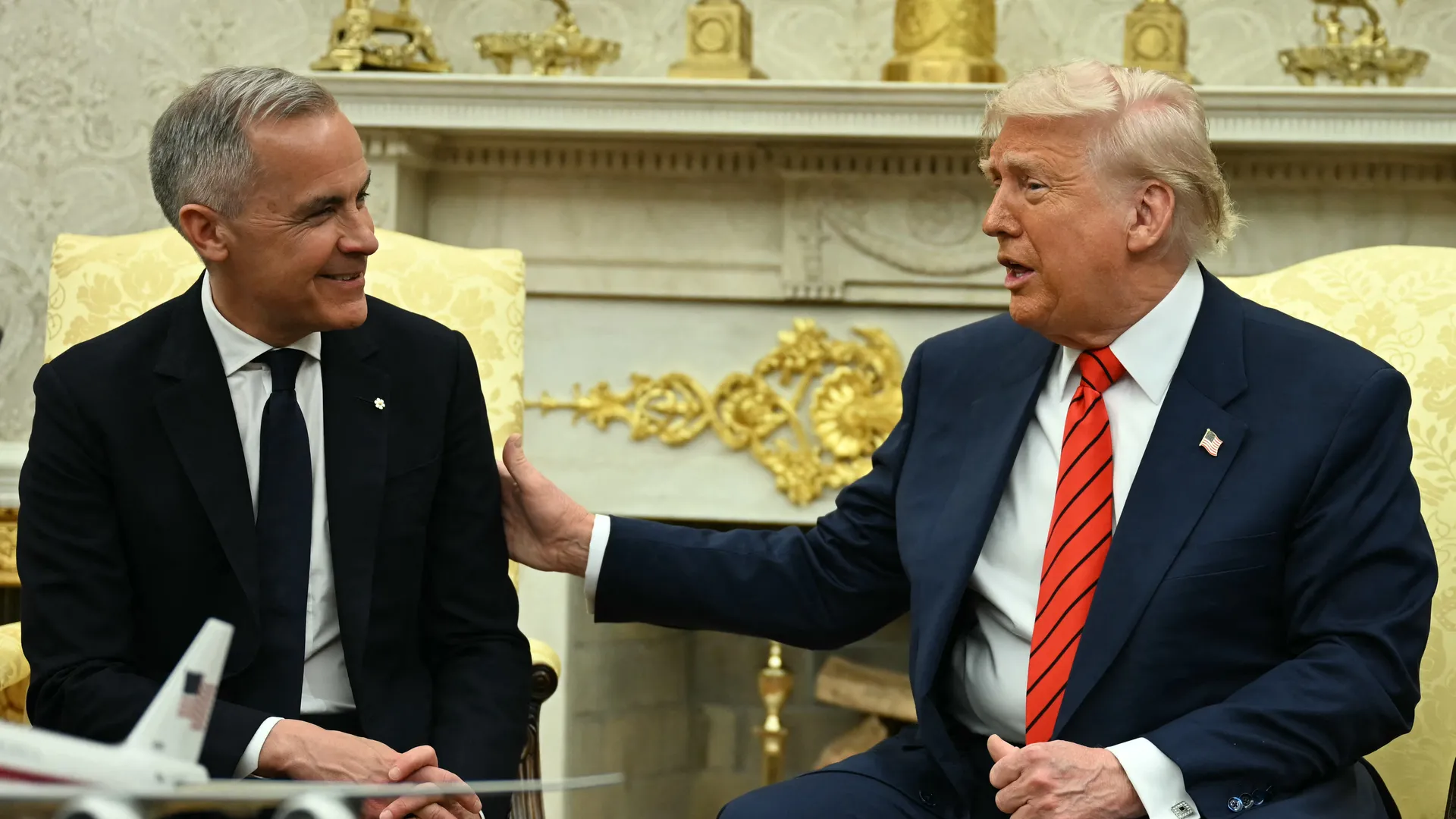WASHINGTON, D.C. (TIP): The United States will impose a tariff of 35 percent on goods imported from Canada starting Aug. 1, President Donald Trump said Thursday in a letter to Canadian Prime Minister Mark Carney posted on social media, injecting fresh turmoil into an already strained bilateral relationship.
The announcement marked a setback in Carney’s efforts to negotiate a new economic partnership with the United States ahead of his self-imposed July 21 deadline. Canadian officials have been seeking a deal that would lift tariffs already imposed by the U.S. In a social media post late Thursday, July 10, Carney said he would work toward a “revised” deadline.
“Throughout the current trade negotiations with the United States, the Canadian government has steadfastly defended our workers and businesses,” the prime minister said. “We will continue to do so as we work towards the revised deadline of August 1.” Trump’s missive is the latest in a series of tariff announcements, delays and reversals that have created uncertainty in international trade for much of the year. On Monday, Trump threatened tariffs of between 25 percent and 40 percent on imports from 14 countries, including Japan and South Korea.
Few countries are more exposed to Trump’s tariffs than Canada, which sends more than three-quarters of its exports to the U.S. Since his return to the White House, Trump has put Canada in his crosshairs, imposing several sets of tariffs that are weighing on its economy and threatening to use “economic force” to annex the country.
In February, Trump announced a 25 percent tariff on Canadian goods — as well as those from Mexico — that went into effect the following month. Soon afterward, he exempted goods covered under the United States-Mexico-Canada Agreement. Canadian energy and potash were hit with a lower tariff of 10 percent.
Trump’s Thursday letter did not specify whether the exemption would continue to apply under the new tariff rate. The White House did not immediately respond to a request for clarification.
The new tariff rate is separate from those imposed or threatened on specific sectors, such as automobiles, copper, steel and aluminum, all of which the U.S. imports from Canada. Should Canada impose new tariffs on U.S. goods, then the U.S. will increase its tariffs that same amount added to the 35 percent rate, Trump said. Canada has imposed retaliatory tariffs on many U.S. goods, though it later rolled some of them back. Carney last month said he could adjust counter tariffs against U.S. steel and aluminum products “consistent with progress made” in the trade negotiations. He did not rule out retaliatory measures.
Trump again insisted that tariffs levied on Canada are a response to the flow of fentanyl into the U.S., though there is little evidence that traffickers are smuggling the drug across the northern border in significant quantities. Less than 1 percent of fentanyl seized at or near U.S. land borders in the 2024 fiscal year came from Canada, according to data from U.S. Customs and Border Protection.
“If Canada works with us to stop the flow of fentanyl, we will, perhaps, consider an adjustment,” Trump wrote. Canada has taken several steps to mollify Trump and address his concerns about fentanyl, even as it has stressed that the country is not a significant source of the drug. In December, the government unveiled a nearly $950 million plan to tighten security at the U.S.-Canada border and this year appointed a “Fentanyl Czar” to focus on the issue. Canadian officials have said they are not sure what more the Trump administration wants them to do.
“Canada has made vital progress to stop the scourge of fentanyl in North America,” Carney said in social media post Thursday. “We are committed to continuing to work with the United States to save lives and protect communities in both our countries.”
Trump has listed several other — and, at times, contradictory — justifications for the tariffs on Canada. These include the U.S. trade deficit with its northern neighbor, which he frequently overstates by more than $100 billion, and the country’s supply management system for dairy. His letter to Carney mentioned both grievances.
Late last month, Canada rescinded a planned digital services tax on large tech companies that would have impacted firms such as Apple and Meta, after Trump called the levy a “blatant attack” on the U.S. and threatened to pull out of trade talks.
Carney, a former central banker, was elected prime minister in April. He cast himself as the person best placed to handle Trump and the dramatic rupture in bilateral ties spurred by the president’s tariffs and annexation threats, and promised an “elbows up” approach to dealing with Trump, a hockey term describing a method of protection from an opposing player.

Leave a Reply